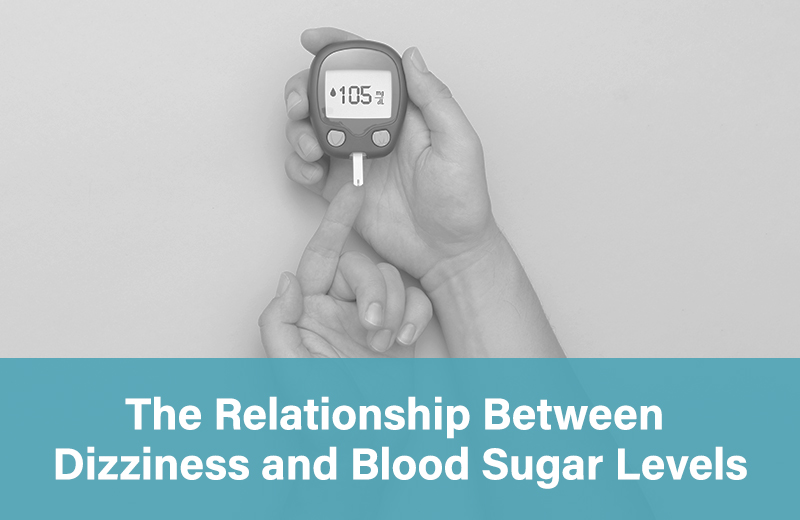The Relationship Between Dizziness and Blood Sugar Levels

If you’re struggling with feeling dizzy or lightheaded, it’s worth considering whether your blood sugar levels may be playing a role. There are a variety of complex causes of dizziness, and even otherwise healthy people can experience dizziness with low blood sugar. If you have diabetes, you may be even more likely to experience dizziness and vestibular dysfunction. Here’s what to know about the relationship between dizziness and blood sugar levels, as well as how a Doctor of Audiology can help.
What Causes Low Blood Sugar?
Carbohydrates in the form of sugar are essential for your brain’s health and function. Normally, the level of sugar in your blood constantly fluctuates throughout the day. When it becomes too low, it can produce noticeable symptoms. A few things that can cause low blood sugar, for example, are not eating enough carbs, drinking alcohol, hot and humid weather, high altitudes, hormone changes, and the nutritional composition of a meal you might have eaten. If you have diabetes, you might experience low blood sugar because of too much insulin. For most people, low blood sugar is perfectly normal and easily treatable.
Why Does Low Blood Sugar Cause Dizziness?
The brain depends on blood sugar as its primary energy source. When it doesn’t get enough blood sugar, it doesn’t work as it should, contributing to a variety of symptoms. One common symptom of low blood sugar is dizziness or lightheadedness. This is typically because the brain tries to preserve energy by reducing function elsewhere. For this reason, low blood sugar can also cause symptoms like difficulty concentrating, anxiety, and emotional instability.
How to Treat Dizziness from Low Blood Sugar
The quickest way to treat low blood sugar and reduce symptoms is by eating or drinking something with fast-acting carbs or easily digestible sugar. It’s often recommended to have a half-cup serving of juice, a tablespoon of honey, sugar, or syrup; or some hard candies. These things will give your blood sugar a quick boost (within about 15 minutes), at which point you should make sure to have a nutritious snack or meal to maintain good blood sugar.
Keep in mind that significantly low blood sugar or regular associated episodes of dizziness can be a more serious problem that should warrant an appointment with a Doctor of Audiology. Our team can help you explore more ways to get relief from dizziness and manage episodes if you have diabetes – and learn more about vestibular dysfunction and the most state-of-the-art treatment options.
Meet With a Doctor of Audiology
Low blood sugar may be a cause if you have episodes of dizziness, and a Doctor of Audiology can help you learn more. Contact NYHD today to schedule a consultation with our team.





